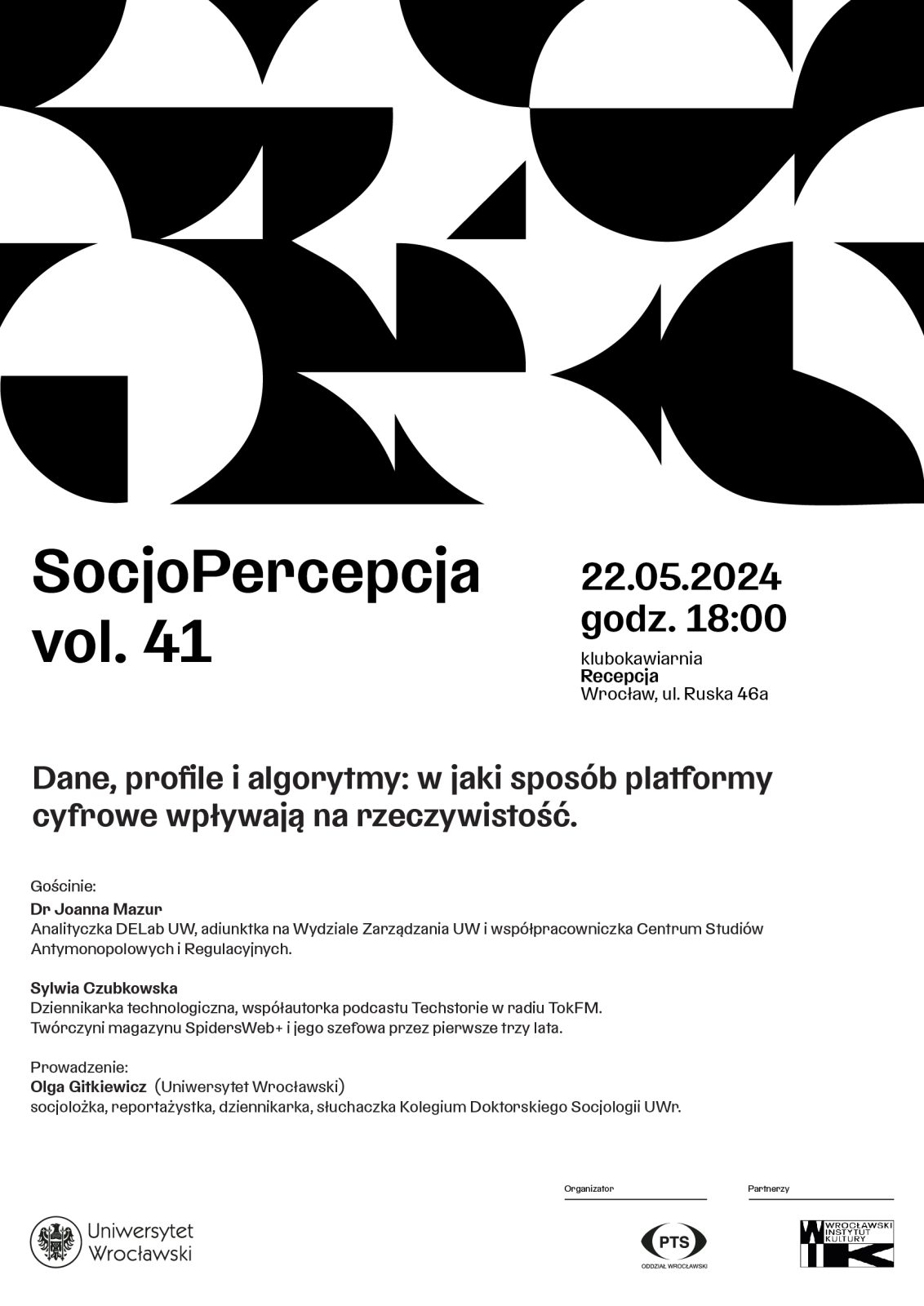The Division of the Polish Sociological Association and the Institute of Sociology of the University of Wrocław in cooperation with the Wrocław Institute of Culture invite you to the next meeting in the SocjoPercepcja series. The meeting will take place on May 22 (Wednesday) at 6pm in the Recepcja club bar café, ul. Ruska 46, Wrocław.
Digitalization permeates many aspects of daily life, influencing social and professional life. It creates conditions for the realization of business models that have no spatial and temporal limitations. This leads to ignoring the rights of workers, employing various anti-union strategies and limiting the possibilities of better working conditions. It is a serious undertaking for the protection of individual and group rights of workers alike, together with the terms of the employment. It also uncovers the hardships of effective control of the companies by the members of the European Union and the Union proper.
Digital platforms and tech companies are a challenge for the decision makes of the country and the Union, and for the citizens in terms of practicing democracy, deepening social and economic inequalities, declining trust in public institutions. GAFAM (Google, Amazon, Facebook, Apple, Microsoft) / Big Tech and digital work platforms (Uber, Bolt, TaskRabbit or Freelancer among others) are especially able to shape opinions, organize and manage work and influence the shape of the political debate. GAFAM and their growing capabilities started a debate around the topic of managing the changes made by them. It seems that the current role of the institution of liberal democracy and the market economy is, in the public and economic life of European communities, limited due to the difficulties in regulating the corporate power of companies.
During the meeting we want to show the way in which the platforms exercise their power. We will also take a look at the legal solutions to regulating corporate power and the influence of digital platforms on social life and public services in the countries of the EU, such as the AI act, and the use of algorithms and automated decision-making processes used, as an example, in determining creditworthiness or profiling the unemployed. Is the use of algorithms a guarantee impartial evaluations? Is it legal and democratic? Can an algorithm be considered a legal act? Why should citizens be able to control the algorithms and automated decision-making in various areas of their lives? All of these questions are relevant as the growth of digital platforms is closely linked to the exploitation of gaps and contradictions in national and EU legislations.
The meeting is a part of the „Increase Corporate Political Responsibility and Accountability” scientific project (https://inca-project.eu/) project no. 101061653.
Guests:
Dr Joanna Mazur – DELab UW analyst, assistant professor of the Faculty of Management of the University of Warsaw, associate of the Centre for Antitrust and Regulatory Studies, author of the book “Algorytm jako informacja publiczna w prawie europejskim” (WUW, 2021) access: https://www.wuw.pl/product-pol-15515-Algorytm-jako-informacja-publiczna-w-prawie-europejskim-EBOOK.html
Sylwia Czubkowska – Technology journalist, co-author of the Techstories podcast on TokFM radio. Creator of SpidersWeb+ magazine and its head for the first three years. Previously part of Gazeta Wyborcza, DGP, Dziennik, Polska The Times and the weekly Przekrój. Nominated multiple times for major journalism awards.
Lead:
Olga Gitkiewicz – sociologist, reporter, journalist, student of the Doctoral College of Sociology at the UWr
Translated by Kacper Piotrowski (student of English Studies at the University of Wrocław) as part of the translation practice.





